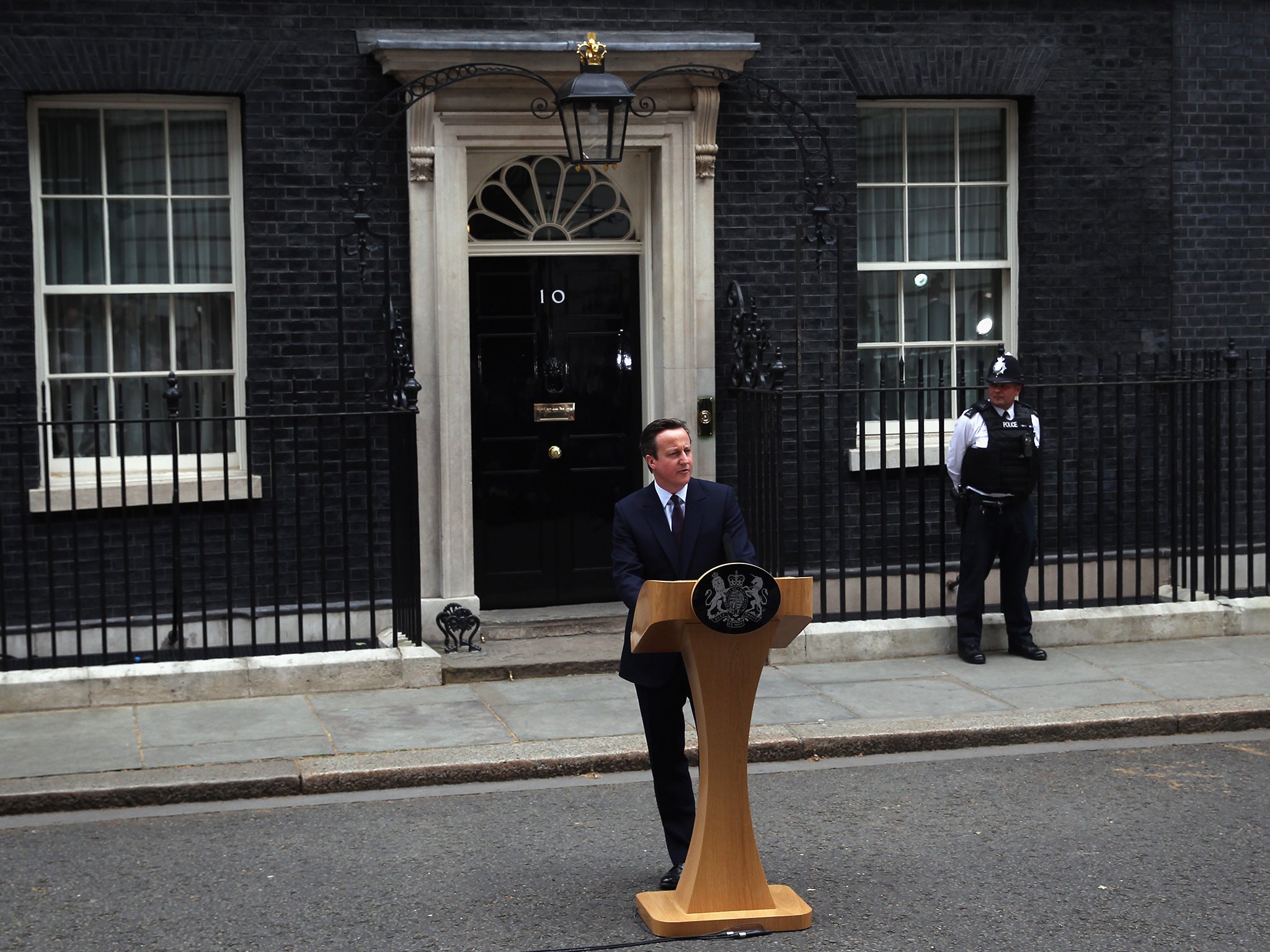Lazy, lying Labour supporters to blame for surprise Tory election win, study finds
Research by British Election Study casts doubt on 'shy Tories' theory and suggests a high proportion of Labour backers failed to turn out on polling day
Your support helps us to tell the story
From reproductive rights to climate change to Big Tech, The Independent is on the ground when the story is developing. Whether it's investigating the financials of Elon Musk's pro-Trump PAC or producing our latest documentary, 'The A Word', which shines a light on the American women fighting for reproductive rights, we know how important it is to parse out the facts from the messaging.
At such a critical moment in US history, we need reporters on the ground. Your donation allows us to keep sending journalists to speak to both sides of the story.
The Independent is trusted by Americans across the entire political spectrum. And unlike many other quality news outlets, we choose not to lock Americans out of our reporting and analysis with paywalls. We believe quality journalism should be available to everyone, paid for by those who can afford it.
Your support makes all the difference.‘Lazy’, lying Labour supporters were the reason why pollsters predicted the 2015 general election result inaccurately, according to research by the British Election Study (BES).
It found that a high proportion of Labour supporters told pollsters they would vote for Ed Miliband but did not turn out on polling day, compared to a much smaller proportion of Conservative backers who did the same.
This helps to explain why polls consistently showed the two parties neck and neck right up until polling day, when the actual result gave a 6.5 per cent lead to David Cameron’s party.

The study, titled Why did the polls go wrong? casts doubt on other theories that attempt to explain the inaccuracy of the polls, such as the idea that “shy Tories” did not want to admit to pollsters they were backing the party or the suggestion that a late swing among the “don’t knows” ended up giving the Conservatives a much larger share of the vote than expected.
Nine out of ten respondents to the study claimed they voted but turnout at the election was just 66.4 per cent and although polling respondents are more likely to be politically engaged than the average voter, the BES said it had “considerable evidence that respondents overstate their turnout”.
For example, one in five respondents in areas without local elections claimed to have voted in them in 2015; up to 6 per cent of respondents said they had voted by post before the postal ballots were even sent out; and 46 per cent of respondents who the BES could not verify as registered to vote in June 2014 claim to have voted in the 2014 European Elections.
“In all of these cases, the fibbers lean significantly more Labour than other respondents,” the authors said.
The number of ‘lazy’ voters as a whole was largely unchanged from 2010, the report found, but the “differential turnout” between the two main parties widened significantly.
Labour picked up many of the Liberal Democrats’ ‘lazy voters’, while many previously ‘lazy’ Tory voters defected to Ukip.
Chris Prosser, one of the authors of the report, said Ukip draws disproportionately from the more lazy bunch of voters” and Nigel Farage’s popularity managed to “suck out some of the lazy Conservatives”.
One route to victory for Labour would be to mobilise this group of “unenthusiastic” supporters, Mr Prosser suggested, but he said it was much harder than it sounded because there were deep-rooted and often cultural reasons why they decided not to vote.
“Engaging these ‘lazy’ voters would obviously improve its chances but it’s not the most cost-effective way of winning elections because often these voters are structurally unlikely to turn out – they’re surrounded by people who don’t vote,” he said.
Mr Prosser added that while the “fibbers” made up a small section of the electorate, small errors can have big consequences when the polls are so close and the stakes are high.
Pollsters were widely criticised for calling the general election incorrectly and the British Polling Council is conducting an inquiry into the apparent “bias” given to Labour in polls across the board. But the BES study concluded that if its “differential turnout” theory is the primary cause of the polling inaccuracy, it is “relatively good news for pollsters” because they can now use turnout weighting in future polling projections.
Join our commenting forum
Join thought-provoking conversations, follow other Independent readers and see their replies
Comments